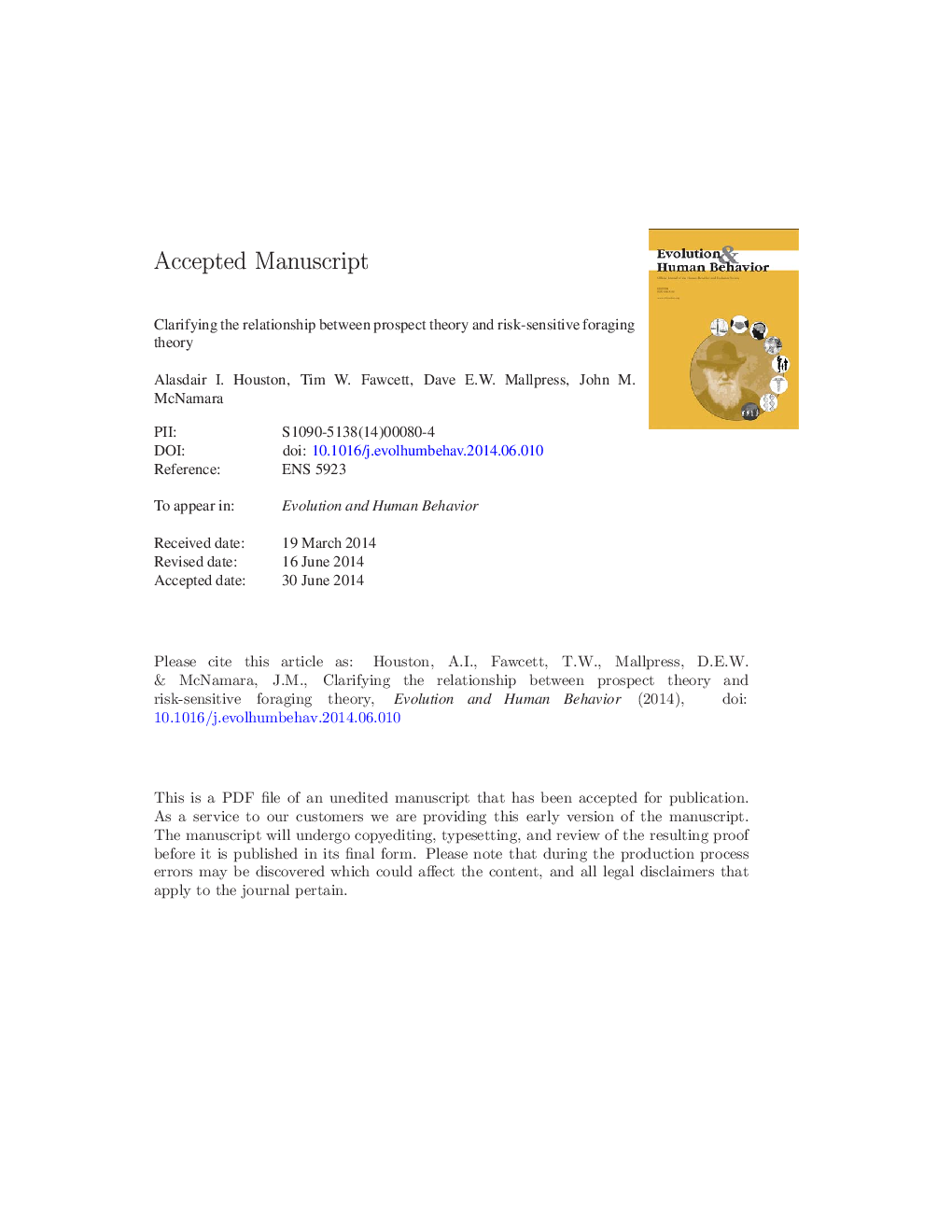| Article ID | Journal | Published Year | Pages | File Type |
|---|---|---|---|---|
| 10464036 | Evolution and Human Behavior | 2014 | 27 Pages |
Abstract
When given a choice between options with uncertain outcomes, people tend to be loss averse and risk averse regarding potential gains and risk prone regarding potential losses. These features of human decision making are captured by prospect theory (PT)-a hugely influential descriptive model of choice, but one which lacks any unifying principle that might explain why such preferences exist. Recently there have been several attempts to connect PT with risk-sensitive foraging theory (RSFT), a normative framework developed by evolutionary biologists to explain how animals should choose optimally when faced with uncertain foraging options. Although this seems a promising direction, here we show that current approaches are overly simplistic, and, despite their claims, they leave key features of PT unaccounted for. A common problem is the failure to appreciate the central concept of reproductive value in RSFT, which depends on the decision maker's current state and the particular situation it faces. Reproductive value provides a common currency in which decisions can be compared in a logical way. In contrast, existing models provide no rational justification for the reference state in PT. Evolutionary approaches to understanding PT preferences must confront this basic problem.
Keywords
Related Topics
Life Sciences
Agricultural and Biological Sciences
Ecology, Evolution, Behavior and Systematics
Authors
Alasdair I. Houston, Tim W. Fawcett, Dave E.W. Mallpress, John M. McNamara,
